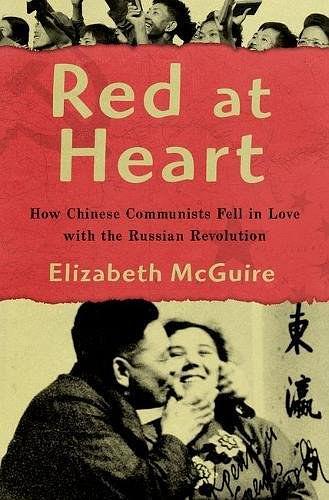
章节目录
Prologue At Vova's
Introduction Serious Romance
Part I: First Encounters: Circa 1921
1 Emi's Adventures: Changsha-Paris-Moscow
2 Qu's Quest: Tolstoy and the Trans-Siberian
3 New Youth, New Russians
Part II: School Crushes: 1920s
4 School Dramas: Costumes, Lines, Roles
5 Shanghai University and the Comintern's Curriculum
6 A Crush on Russia: Qu's Female Protégés
7 Chiang Kaishek's Son in Red Wonderland
8 Heartbreak: the Demise of Qu
Part III: Love Affairs: 1930s-1940s
9 Kolia the Chinese
10 Liza/Li: The Agitator and the Aristocrat
11 Emi/Eva: The Love Affairs of a Sino-Soviet Poet
12 The Legend of He Zizhen: Mao's Wife in Moscow
13 Sino-Soviet Love Children
Part IV: Families: 1950s
14 Male Metaphors: Mao, Stalin & Brotherhood
15 Wang, Dasha, and Nastya: Russian Romance Redux
16 Legitimate Offspring: Chinese Students in 1950s Moscow
17 Female Families: Liza's Home, Eva's Adventures
Part V: Last Kisses: 1960s and Beyond
18 The Split Within: Sino-Soviet Families Under Pressure
19 Defiant Romantics: Ironies of Cultural Revolution
20 Nostalgia: Wang's Search
Epilogue At Yura's
Acknowledgments
Notes
Bibliography
Index
内容简介
Beginning in the 1920s thousands of Chinese revolutionaries set out for Soviet Russia. Once there, they studied Russian language and experienced Soviet communism, but many also fell in love, got married, or had children. In this they were similar to other people from all over the world who were enchanted by the Russian Revolution and lured to Moscow by it.
The Chinese who traveled to live and study in Moscow in a steady stream over the course of decades were a key human interface between the two revolutions, and their stories show the emotional investment backing ideological, economic, and political change. They embodied an attraction strong enough to be felt by young people in their provincial hometowns, strong enough to pull them across Siberia to a place that had previously held no interest at all. After the Revolution, the Chinese went home, fought a war, and then, in the 1950s, carried out a revolution that was and still is the Soviet Union's most geopolitically significant legacy. They also sent their children to study in Moscow and passed on their affinities to millions of Chinese, who read Russia's novels, watched its movies, and learned its songs. Russian culture was woven into the memories of an entire generation that came of age in the 1950s - a connection that has outlasted not just the Chinese Cultural Revolution and the collapse of the Soviet Union, but also the subsequent erosion of socialist values and practices. This multi-generational personal experience has given China's relationship with Russia an emotional complexity and cultural depth that were lacking before the advent of twentieth century communism - and have survived its demise. If the Chinese eventually helped to lead a revolution that resembled Russia's in remarkable ways, it was not only because class struggle intensified in China due to international imperialism as Lenin had predicted it would, or because Bolsheviks arrived in China to ensure that it did. It was also because as young people, they had been captivated by the potential of the Russian Revolution to help them to become new people and to create a new China.
This richly crafted and narrated book uses the metaphor of a life-long romance to tell a new story about the relationship between Russia and China. These lives were marked by an emotional engagement that often took the form of a romance: love affairs, marriages, divorces, and
下载说明
1、Red at Heart是作者Elizabeth McGuire创作的原创作品,下载链接均为网友上传的网盘链接!
2、相识电子书提供优质免费的txt、pdf等下载链接,所有电子书均为完整版!
下载链接
热门评论
-
恶时辰的评论一片红心:中国共产主义者如何爱上俄国革命
-
helenharris的评论作为非虚构作品来读非常好看。
-
dow的评论八卦小报印成书了
-
焉能淩风飞的评论故事书。
